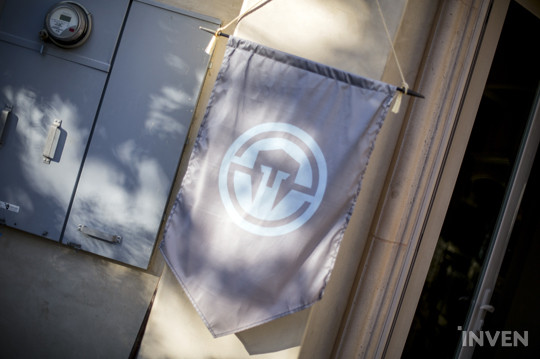
Teams need to be much more than just the sum of their parts.
There are many reasons why a fan might might cheer for a team. Let's take NBA's Chicago Bulls as an example: there are fans who adored players like Michael Jordan and Dennis Rodman; and there are fans rooted for Chicago Bulls either because they lived in Chicago or they simply liked the team.
As for esports, fans feel more affiliated to the players rather than the organizations. Fans are more interested in players and the stories behind those players rather than the team that they belong to. If we'd look at the fanbase of ROX Tigers after their rebuild, it wouldn't be a stretch to say that the fans loved the players more than the team that they represented.
When we met Noah Whinston, the CEO of Immortals, he stressed that organizations and teams would need to create a brand out of themselves. He wanted Immortals to be an organization that fans will cheer for even when they are going through rough patches. What could be his thoughts on the organizations and their future role in esports? We've visited Immortal's team house in Los Angeles and talked to Noah to hear them in his own words.

We've heard that you've dropped out of college to become a team owner - Can you tell us how it happened, and why you decided to form an esports team?
First, I'd say that my perspective of esports is close to that of a fan. The first time that I've watched League of Legends was at Season 3 World Championship with MonteCristo and his 'Korean Hype Train'. That was what got me into watching esports, and I also started to play League of Legends from that point.
For me though, I wasn't happy with how team interacted with their fans. I felt they weren't doing a good job trying to earn my support. So, I decided to try and do it better.
The part that allowed me to do that was having a background in sports statistics and data, and while I was at university I was betting on sports matches. When there was a website that dealt with esports betting, I was one of the top winners by using data and statistics.
I got known pretty quick in the community, and I met the people who ran those websites and they introduced me to people in LA who eventually became my investors to start a team.
Often when people take their hobby as a career, they sometimes grow to hate their once-beloved pastime. Do you still love esports as you have before after becoming a team owner?
I think I have more sophisticated view now. I know more and care more about the structure of the game, as opposed to being just a fan that just watches the game. A fan doesn't have to understand the full structure of creating a broadcast or an ecosystem, but as a team owner, I have to look at that and care about it a lot.
A good example would be esports players being able to get the athletic visas for staying in United States. Fans can just say that "Cool, the government is recognizing the esports as a real thing." As a team owner, that was the most important news in last two years - because that's what allows us to bring in talented overseas players.
They say "Ignorance is bliss", and it's actually harder to enjoy broadcast in peace unless it's my team that's playing. But, I do think there are a lot more interesting things on esports that I have a better appreciation for.
Can you tell us your most enjoyable and most difficult moment of being an owner?
When I first started to work in esports, I thought my role to the players would be that of a boss. In practice, however, I found my role to be that of a parent. Esports players don't often have a lot of life experience nor maturity yet. So, they need to have someone that will help them grow and try to look out for what's best for them.
It's really like being a parent. When you have a really good time with children, it's really fun; when your children throw tantrum, it's not fun dealing with that. In a work environment of a 'real' company, when one of your employee does something wrong, you'd just fire them. In esports, it's better to repair the relationship and teach them why what they did wasn't the right thing to do. It's a lot more like a family relationship than that of a business.
One of my happiest moment in the last few months was watching Seunghoon "Huni" Lee of SKT T1 win the LCK. As much as he is not on my team anymore, I'm still happy to see him succeed in his career.

You've mentioned how you teach the players on important issues. What are your thoughts on the recent racism issues that were brought up in the esports scene?
We had conversations about those issues among ourselves. Not just what happened in Brazil recently but also what happened during Worlds 2014 in Korea. It's important to know that none of the players want to hurt people. They just don't know better. It is important to teach them not just what to say, but why certain things are offensive to other cultures.
A really good example of this is actually something that we did wrong. During the last off-season. We made a fake GorillA jersey as a joke. However, it was viewed much more seriously in Korea. We admit that we did that without knowledge of how that could affect different cultures. We didn't mean any harm, but we needed to learn about different cultural perspectives to learn about why it wasn't a right thing to do.
What are Riot Games and other related organizations doing to help educating the players?
Riot Games do host player conferences - 'summits' - every split. However, they can tell what players should and shouldn't say in those summits, but in order to make players truly learn, they need to have more consistent environment. You need be in a team environment where the team is promoting education to understand why it's not acceptable. To be fair, Riot is doing the most that they can do - They can't talk to players every single day to help solve these issues. I think a lot of it is on the team to create the right environment for it.
We've heard about Professional e-Sports Association (PEA), an esports association similar to KeSPA in South Korea. How was PEA formed, and what are their goals in the NA esports scene?
We've seen a lot of success from government-sanctioned organizations like Korea's KeSPA and China's L.ACE, and those organizations help upholding a certain norm like setting good standards for contracts and making sure that teams cooperate together to help build these systems. So, our goal for PEA was to bring NA teams together and align behind the same group and take on projects that are too big for a single organization to tackle.
However, with so many changes coming up like Overwatch League and permanent partnerships with Riot Games, the ecosystem is rather unstable, and it wouldn't be a good idea to make a decision on status quo. As of now, we are focusing on building our long-term strength because PEA will only be successful if we can stick around for 10-20 years. However, we will have a big announcement coming up in a few months.
Let's move on to player salaries. Player salaries are increasing over time, so the cost of owning a team is increasing as well. As such, there are teams that are owned by large corporations in LCK such as SKT T1, KT Rolster and Jin Air Green Wings. What is the fiscal situation like for teams in NA LCS?
Outside of Korea, teams that are directly owned by big corporations don't really exist. It's mostly club teams that get sponsored, but not owned by big corps. For North America, most teams are spending more than they earn, but we expect that to be temporary until the ecosystem stabilizes and more structure is built. That's when bigger sponsors will come and that's when revenues will be shared from publishers. We expect to be more profitable after two to three years from now.
It's also important to remember that for a long term, esports was profitable with just a few teams. Then, capitals like us came in thinking that esports could be bigger in a few years from now. We spend a lot more than the current industry justifies because we think the industry will grow. So, in order to keep up, other teams need to pay more salary and invest in better coaches. I guess we are first 'symptoms' of how outside investors realized the potential of esports.
Also, we are not worried because everybody expected to lose money at first - you don't expect to make money right away after investing. Our goals are long term - we are not going to go away after earning a lot of money.

LPL recently announced that they will implement 'franchising' system from 2018. What are your thoughts on franchising, and would you want it to be implemented in LCS as well?
I'm in favor of franchising, but I guess this is another question where fans and owners will have different answers. Fans think that the viewing experience will be worse because the teams won't be relegated even if they do poorly. However, they realize the impact of permanent partnerships have on stability.
Fans like to see new players and talent, but the teams won't take risks of getting rookies without permanent partnerships. This is because unlike other sports, a single bad split will mean that the team will be relegated, so very few rookies enter the scene compared to other sports. Fans also like to see their favorite players earn more salary and get cool sponsors, but this too will only happen with more stability.
In the long term, this will create partners that Riot Games and even other publishers can work with. I don't know how and when this will happen in other reasons, but I thinking it starting in the LPL is a good move.
Do you think there will be an North American team that is owned by a large corporation like those in South Korea?
I don't think so. It's a unique case in South Korea that doesn't just apply to esports. Sports teams in Korea have always been owned by big corporations. That's just the model that works there. In western countries and even China, companies prefer to sponsor teams and use them as advertising rather than owning the team entirely. Here, companies wouldn't want to buy a roster and staff directly but instead take an easier and less risky way to advertise their company.
Think of how it worked with CJ Entus. CJ was a great team for a long time, but they are now relegated. However, they cannot just sponsor SKT T1 instead, because they decided to go all-in on owning a team instead of taking less risks by sponsoring teams. Owning a team will either be really great or really terrible for the company depending on how the team does.
South Korea forbids agents from representing esports players. Is this the case in North America as well?
Agents are allowed in North America. I know Korea had bad experiences with agents before when KaKAO and Rookie tried to go to China. However, in North America, agents are very important for players to understand the significance of the contract that they are signing.
Players tend to see just the salary and how long the contract is going to be for. They won't understand everything that are written on a 25-page contract.
We like to have agents and lawyers representing players so the players fully understand what they are signing. Saying what players are happy and unhappy about will be easier to communicate through lawyers too.
Even as an owner, it's much better for me to communicate through agents to players when there are something that players should and shouldn't do in regards to contracts.
Wouldn't agents be bad for owners since they could be a reason for players' increasing salary?
In some ways, sure. However, I don't feel good about paying players less by tricking them into taking lower salaries. I want my team to be a place where players are even willing to take less salary to play, maybe like SKT. I want the players to understand the value that we give them outside the salary, and I think the agents can also help explain to players about those things.

As the owner of Immortals, what is your ultimate goal with Immortals as an organization?
A lot of things go into this, but ultimately what we care about is building a passionate and devoted fanbase. Our ultimate goal is not to have the biggest fanbase, but instead to have the most devoted fanbase. We want to be the team with the fans that support us even when we lose. If you build your team around how you always win, the fans will leave you when you lose. I think that's what we are doing right now - we have fans that stayed with us even when our performance wasn't that good.
We noticed how NA teams have a lot of merchandises that are sold on match days. Are those merchandises helpful for the teams' income?
I think it depends on the team. For bigger teams with TSM and C9, I think it does a lot. For us and those who are still building the fanbase, it does less. However, we think it's important to do that not just because of income, but because it gives the fans a feeling that they are on the same side of the team. We want the merchandises to be on hands of many fans as possible so that they feel that they are invested on the teams.
There are situations where fans and owners might have different opinions about certain issues. Is there anything that you'd like to tell the fans that you hope that they'll understand?
I think fans don't understand how stressful off-season and roster changes can be for owners. Fans are often disappointed at the roster changes, but I want them to know that we are doing our best. When we put together a roster, we don't know whether it will be good. However, whether the result was good or bad, please do know that we put in our best effort to have the best roster that we can have.
We'll wrap up the interview with this question. You've emphasized making fans of organizations beyond just the players. However, it wouldn't be a stretch to say that esports fans are more leaning toward players rather than the organizations. Fans who cheered for Chicago Bulls and Michael Jordan stayed with Chicago Bulls even when MJ retired, but the same cannot be said for SKT T1 and Faker. How are you exactly trying to change this player-based fandom into team-based fandom?
I do think that the player-based fandom is a problem. Players will retire, and Faker will retire one day too; fans then will sometimes move on to other players. However, when players like Faker retire, some may decide not to watch esports anymore. For esports as a whole, and especially to us, it's much more important to have fans of us as an organization.
If we can't do that, that means we are not creating value for a fan above what a player can create. That's why teams exist. Teams need to create content, brand and fan royalty beyond the players.
I think SKT T1 is doing a pretty good job on that. Everyone looks at Faker as the best player of SKT, but SKT has so many talented players beyond Faker - they developed, scouted and acquired the best talent consistently.
As for us, we built good teams, but more importantly, we also built a lot of video contents around the team that allowed our fans to feel close to the players and the organization. Like that, every organization needs their own identity of why people should support them.

Photos by Joonkyu "Lasso" Seok
Sort by:
Comments :0







